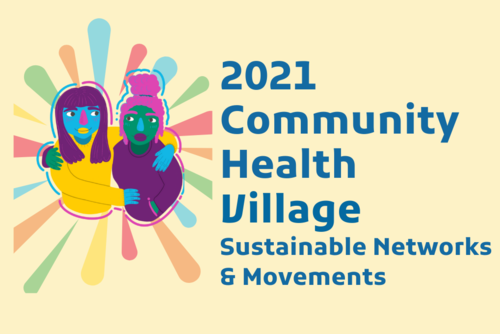Dealing with Conflicts in Activist Groups and Teams

Dealing with Conflicts in Activist Groups and Teams
- Who: Marianne Koch
- Date: Tuesday November 23, 2021
- Time: 9:00 - 11:00 am EDT / 14:00 - 16:00 UTC
- Duration: 2 hours
- Type: Workshop
- Language: English
- Location: BigBlueButton
This workshop is limited to 12 people. You will be put on a waitlist if the session has reached capacity. Depending on the demand, we may consider hosting this session again in the future.
Conflicts in teams and groups can be exhausting. Although everyone might share the same vision, conflicting parties can be blocking each other, even up to until one or several people leave the group or the project as a whole gets stuck.
In this workshop we want to take the very first steps on how to deal with conflicts in a constructive and respectful way. How to talk about conflicts without escalating through mutual accusations and interpretations? What settings are needed? What about power dynamics and different approaches to conflicts in diverse groups – how can a team create a climate that enables everyone to speak up.
Bio: Marianne is a Mediator and Holistic Security Trainer. Being an activist herself, she trains other activists how to facilitate conflicts in grassroot groups and diverse teams. She is based in Germany.
Notes
Agenda
- What is a conflict
- From interpretation and accusation to description
- Break
- Position - interests - needs
- Prevention and response: best practices
What is a conflict?
Party a: is (not) doing something /does (not) want something
Party b: feels bother by it (disturbed, uncomfortable)
Simple exercise
Ask yourself what is the action that is bothering you (not focus on the characteristic or behavior of the person). What are good practices / experiences you have in preventing conflict?
- repeating/reflecting back to the person what you heard them say (" I hear you saying xyz, did I hear you correctly?")
- quick evaluation at the end of each meeting
- tool for for prevention: using accountability and support pods (https://batjc.wordpress.com/pods-and-pod-mapping-worksheet/)
- deal proactively with conflicts when they are small, before they escalate
- prioritize on discussing conflicts as soon as they arise (instead of pushing them under the rug), while practicing *active listening* to understand everyone's perspectives.
- Create concrete next steps for addressing the issue, and ensuring who's responsible for implementation of those next steps. Also determining best practices to avoid such conflicts from re-emerging in the future.
- address the issue immediately and not pushing it under the rug helps the prevention but might also slow down the potential positive outcome of the conflict
- have a conflict resolution guideline and preferably dedicated group of people to facilitate, if needed. Having trained a team who are knowledgeable on the conflict transformation process
- tool for prevention: actually make organisational changes suggested by people's best views on how to handle previous conflicts. E.g. changes in the code of conduct
- to prevent conflicts: have regular meetups for "airing grievances", so that people can feel heard, misunderstandings prevented, - and "we" can catch conflicts while they are small
Questions
Q: How can one distinguish gaslighting?
A: "Gaslighting is a technique that undermines a person's perception of reality. When someone is gaslighting you, you may second-guess yourself, your memories, and your perceptions. After communicating with the person gaslighting you, you may be left feeling dazed and wondering if there is something wrong with you. Gaslighting can confuse you and cause you to question your judgment and overall mental health. It may help to know more about the tactics a person who is gaslighting someone might use."
Resources
Conflict resolution practices from a hackerspace: https://media.ccc.de/v/rc3-channels-2020-125-how-to-solve-conflict-in-a-community-of-equals
Gaslighting: https://www.medicalnewstoday.com/articles/gaslighting#gaslighting-examples https://norasamaran.com/2016/06/28/on-gaslighting/
Using accountability and support pods: https://batjc.wordpress.com/pods-and-pod-mapping-worksheet/)
Suggestion
* have a session on navigating abuse and things like gaslighting